- Home
- Lynne Reid Banks
The Fairy Rebel Page 7
The Fairy Rebel Read online
Page 7
“Well?” said the Queen.
Jan tried to speak. She tried to think. Slowly the dark wings folded back. The big eyes weren’t looking at her anymore. Jan looked at the Queen’s face. She seemed to be smiling coldly.
“Why are you doing all this?” Jan whispered.
“Get down on your knees when you speak to me,” hissed the figure on the wasp throne.
Jan tried not to obey, but she couldn’t resist. She sank onto her knees. Now the Queen was much higher than her head.
“Look up,” she ordered.
Jan looked up. The wings opened, tilted. The eyes pinned her.
“Why am I doing all this?” asked the Queen. “I will tell you why. Eight and three-quarter years ago, a wretched little fairy dared to disobey my commands. She interfered where she had no right to interfere. She gave life. Only the Queen may give life. Or take it.”
“You haven’t killed Tiki!”
The Queen smiled again.
“I do not kill,” she said. “It would not be fitting for the Queen to kill.”
But she stroked the arms of her throne as she spoke. They moved under her hands. Each arm was a wasp’s back. It was as if she stroked pet tigers that would do whatever she ordered.
“Your wasps kill for you,” said Jan. “What’s the difference?”
The Queen’s wings snapped open, the false eyes stared. Jan felt her heart grow cold, her tongue freeze in her mouth. The Queen was not smiling now.
“You have seen a little of my power,” she said. “Just a little. What you do not know is that I have turned your dear, good little child—your fairy child, as you dare to call her—into a lazy liar and a greedy thief. What is happening to her up there”—the Queen waved one hand toward the top of the house—“is only the result of theft and of greed. For humans, nothing is ever enough; they are never satisfied. That is why fairies are forbidden to make magic for them or give them gifts. They always want more—more—more!”
“Not Bindi!” cried Jan. “She’s not greedy—and she’s not a liar—and she’s not a thief! Never! I know her, I’ll never believe she would do anything really bad!”
“She will do whatever I wish her to do,” said the Queen.
“The way you made me kneel to you,” whispered Jan.
“What do you mean?” snapped the Queen.
“You forced me to do it. You made it happen. We have no magic power. If you used magic to make Bindi do bad things, that’s not her fault; it was nothing to do with her! You can’t be proud of that, any more than you can be proud that I’m kneeling on the ground!”
The wings opened again but now Jan closed her eyes and would not look at them. She made herself go on:
“You don’t think I respect you, do you? You don’t think your fairies and elves really love you?”
“How dare you!” The Queen’s voice was like the hiss of a snake. “Of course they love me! They say so every day, every hour! They love and respect and honor me. It is my first command that they love me!”
Jan opened her eyes and faced the wings, which were quivering strongly, their awful eyes glaring at her.
“They hate you,” she said.
The Queen rose to her feet. Her flowing gown shot gleams of greenish light, like sparks. She quivered all over. The wasps that had been flying in the garden stayed still in the air, but the wasps that made the throne began a low, angry buzzing. The tall pillar they had formed seemed to sway as the wasps crawled over each other.
“They—what?” asked the Queen in a sharp, dangerous voice.
Jan found she could stand, and she did, though awkwardly because of her lame leg. When she stood up she was level with the Queen. She set her teeth and said, “They hate you. They’re frightened of you. You let them be killed. You make them cry. You shut them up and then you go away and forget them! They would all be much, much happier if you were—if you were dust!”
The Queen stood there on her tall, swaying wasp throne with a look of wild, unbelieving rage on her face.
“Punishment is necessary,” she hissed. “I do not forget! And I do not forgive! I will show you something before I punish you.”
She raised her arms and clapped her thin hands once above her crowned head.
Her wings opened. They were like the background of a stage. Two wasps—strange flying figures among all the ones still frozen in the air—flew down. They flew close together as if carrying something invisible between them. They settled at the feet of the queen. She pointed a commanding finger, and the next second a fairy appeared between the carrier wasps.
She was a poor, thin, ragged little fairy. Her hair was the pale color of a dead rose petal. She wore a tattered brown dress. Her stumpy wings were shabby and gray, and drooped from her shoulders as if they hadn’t been used for flying for a long time. And she was terribly thin. As Jan peered closer, she could just see the white traces on her cheeks, where her sugary tears had dried.
It was Tiki. Changed, half-starved, faded and pitiful, but still, without a shadow of doubt, Tiki.
7
The Magic Rings
“Oh,” whispered Jan. “Tiki darling. What has she done to you?”
A flicker of a smile crossed poor Tiki’s thin, tear-crusted face.
“Nothing much,” she said carelessly. “I don’t care.” And her hands made their old movement, up and down her body, back and front, as if she was trying to change her clothes, to make herself less ragged and pathetic so Jan need not feel so sorry for her. But nothing happened.
So, thought Jan, the Queen, if she really wanted to, could stop a fairy changing clothes. She could stop her magic growing. She could fade her natural flower colors and turn her into this poor little creature. And she could stand there smiling at her cruel work.
But Tiki was smiling too. She was not beaten.
“I’m fine,” she whispered. “I’m just dressed like this because—because it’s winter and the roses are sleeping. And I always get thin in winter because there’s no honey.”
“But it’s summer, Tiki,” whispered Jan. “Yesterday was Bindi’s birthday.”
Tiki looked around her, as if waking up.
“Summer? It can’t be. Look at the roses; they’re all dead. And if it was Bindi’s birthday, I’d have made her a rose-present, wouldn’t I? I always make her a rose-present.…”
She looked fearfully over her shoulder and seemed to see the Queen for the first time. She gave a little cry of terror, dropped to her knees and buried her face in her hands.
“So! You make her magic gifts, do you?” hissed the Queen. “But not this year, eh? This year you had other things to think about than fancy clothes and wasting your magic on human children!”
Once again she reached above her head and clapped her hands, and once again two wasps buzzed down. Jan guessed whom they brought with them this time, and sure enough, when the Queen pointed, Wijic appeared. He, too, was a sorry sight. His red tunic was torn and dirty, his hair had turned brown, his green skin was pale and his shoes and cap were gone.
Yet he, too, when he saw Jan, grinned at her and raised his hand in half a wave. Then he spotted Tiki and his grin slipped.
They stared at each other. Wijic turned for a second and gave the Queen—standing there so fierce and proud—one look of fury and hate. Then he ran across the backs of the wasps and grabbed Tiki in his arms.
They clung together. Jan couldn’t bear it.
“You wicked, cruel creature!” she shouted at the Queen. “Look at them! Your own fairies! How can you, how can you treat them like this?”
“They disobeyed me, and they are disobeying again!” cried the Queen. “Get back, elf! What do you mean by it? Don’t you know that love between fairies is forbidden? You may love only your Queen!” A wasp heaved itself out of the mass under the fairies’ feet and thrust itself between Tiki and Wijic. Jan wrung her hands and bit back her tears.
“Now you will see what happens,” said the Queen, “when fairies meddle with huma
n beings, and when humans accept their gifts. Look behind you!”
Jan turned. Through the dark mist she could see her house, with the shower of toys halfway down its wall and everything still. At the back of her mind she knew that up there in Bindi’s bedroom everything else was still. Time itself was standing still while the Queen sat there on her tower of wasps.
“I am going to call your child,” said the Queen.
“No!”
“Yes. I have only to snap my fingers and she dies under the weight of a thousand toys. As for these …” She pointed her forefingers at Tiki and Wijic. “They are as good as dust already!” Two huge wasps turned their stings upon the fairy and the elf, ready to strike as soon as the Queen ordered it.
The Queen clapped her hands once more.
At once everything started to move again. The dark mist went away. The holly bush snapped back into its place. The wasps that had been flying through the dead roses flew again, though they didn’t attack Jan now. The shower of toys fell down the rest of the way with a clatter.
And suddenly, out through the broken window came Bindi.
Jan shrieked with fear. But then she saw that Bindi was sitting on a big blown-up rubber duck. It fell from the window with Bindi on its back, clinging round its neck. The duck bounced as it landed, and Bindi, unhurt, got up quickly.
She looked round and saw Jan at the bottom of the garden.
“Mummy!” she cried, and ran toward her.
Jan wanted to tell her to stop, to go back, but she couldn’t say a word. Bindi rushed up to her and clung to her.
“Mummy! It was awful—it was that rose twig—it made everything keep coming and coming.…”
Jan hugged her close. “It’s all right,” she said, though it wasn’t. There was nothing else she could do.
Then Jan caught sight of Tiki over Bindi’s shoulder. She was staring at Bindi’s back. A strange thing was happening—unless Jan was imagining it. A little color was creeping back into Tiki’s hair, and her wings seemed to be fluffing. She was whispering something—some one word.
Jan leaned closer, still holding Bindi tightly. Bindi’s ponytail had come loose and her brown hair was hanging down over her shoulders. Tiki was staring at it. And that was what she was whispering, as she had once sung it joyfully while she danced in her pink ballet dress:
“Hair—hair—hair!”
“What are you muttering to yourself, fairy?” demanded the Queen. “It’s useless trying to make spells. I’ve kept your magic well cropped. Nothing can save you now!” And she began to raise her arm.
“Wait!” cried Jan. A strange, crazy idea had begun to form in her mind. “Don’t you—don’t you have any—civilized customs?”
The Queen’s arm dropped.
“What are you talking about?” she asked coldly.
“Before they die, can’t they make a last request?”
“So you think my fairy realm is not civilized,” said the Queen. “We are far more civilized than humans!” She turned to Tiki and Wijic. “You may have a last request, both of you, before you are stung to dust.”
“I want—I want a hair off Bindi’s head,” whispered Tiki. And she looked at Wijic and nodded at him.
He looked quite puzzled, but he said, “That’s what I want too.”
And Jan knew that her crazy idea was right.
“That’s not much to ask,” she said. “I’m sure your Queen won’t refuse. I’ll pluck out the hairs myself.” And she bent over Bindi, fumbling with her hair.
“Ow!” cried Bindi, and a second later, “Ow!” again.
Then Jan wrapped each hair quickly round her fingertip till it made a ring, and handed one ring to Tiki and one to Wijic.
“Let me look at those hairs,” the Queen said suddenly in a suspicious tone. “They are not the same color as—”
But it was too late.
Clinging to the ring of blue hair, Tiki cried out in her piercing little voice:
“Tilidiki! Tilidiki!”
And Wijic, suddenly understanding, waved his blue hair-ring in the air and shouted the same word.
8
The Great Gathering
There was one terrible moment when the very air around Jan’s head seemed to hold its breath. The Queen’s wings snapped forward and the fearsome masklike eyes glared, and Jan felt Bindi go limp in her arms. Her own blood began to chill in her veins. The Queen’s arms rose slowly—her face was twisted with fury—but Tiki and Wijic, with a lightning movement, threw their hair-rings over her arms like lassos, and they seemed to drag first her arms, and then the Queen herself, down, until she lay crumpled at the foot of her wasp throne.
The tower of wasps seemed to tremble, then totter. Then it began to break up. Tiki and Wijic spread their wings. Tiki was screeching with delight. She was looking pinker every minute. Her hair, standing up on end, was already its normal color, and as her wings beat the air in excitement, they seemed to get back all their lavender pink and their furry shine. As for Wijic, he was dancing up and down; he had changed into his favorite schoolboy clothes and was waving his red cap in circles above his head.
As the tall black wasp tower crumbled and broke up, the wasps half flying, half falling, fairy and elf took off, hovering in the air above the ruin.
The Queen crashed five feet to the ground and lay there, the blue hair-rings still circling her arms.
But she was not dust. The wasps’ bodies had partly broken her fall. She sat up slowly, trying to shake the rings from her arms. Her wings hung behind her like broken kites, and the eyes on them were hidden.
Jan crouched on the ground with Bindi in her arms. She could hear Charlie shouting somewhere behind her, and guessed that the evil magic toys in Bindi’s bedroom had somehow lost their power and that Charlie was free. She called him: “Charlie! We’re out here!” And she heard his footsteps pounding toward them.
Then she heard something else.
It wasn’t quite hearing. And it wasn’t seeing. She sensed it. It was as if the air around her and the ground under her were humming and trembling with the movement of a million pairs of wings and a million pairs of feet. They could not be the wings or feet of the dreaded wasps, because one glance around showed Jan that all the wasps were dead or had escaped. In any case, she felt no fear, but a wonderful feeling of excitement, a thrill all through her as that humming and trembling came closer and closer until she could sense it surrounding her.
Charlie, white-faced, bruised and panting, flung himself onto the grass beside her.
“Jan! Bindi—is she all right? Are you all right?”
Bindi was just sitting up, rubbing her eyes and shaking her head.
“What happened?”
“I think you fainted, darling,” said Jan. “It’s all right now. Just watch.”
Sitting there together in the garden, the three of them stared.
At first they couldn’t see anything. But Tiki flew onto Bindi’s shoulder—Bindi, who had never seen a fairy before, was absolutely pop-eyed at the sight of her—and said, “If you can spare three more of your magic blue hairs, one for each of you, you can see them.”
“See what?”
“Something no human has ever seen before.”
So there were three more “Ow”s from Bindi as Charlie tweaked three more of her blue hairs out, and they each made a ring round their fingers—and suddenly they could see them.
It was a fantastic sight, never to be forgotten. It was nothing less than a great gathering of fairies, elves and gnomes, coming together to witness the end of the wicked Queen.
The gnomes, who had no wings, marched on the ground—sturdy little people in drab-colored clothes, carrying spades and pitchforks and other tools and implements. They marched in from all sides, and looking farther away, Jan, Charlie and Bindi could see more and more of them—scrambling over the garden fence, or through holes in it, out from under the roots of the fruit trees, digging themselves out of the ground itself. One came out from under Charl
ie’s shoe.
And the air was absolutely thick with fairies and elves. It was like being in the heart of a rainbow. There were all kinds and colors, some with clear wings like dragonflies, some with shaped, brilliant wings like butterflies, and others, like Tiki, with furry mothlike wings. Some of them were beautifully dressed. Others, like Tiki and Wijic, looked tattered and faded, as if they, too, had been in prison or had had their magic taken from them.
The beat of their wings fanned the air. The humans could feel it on their faces as the huge drifts of fairies and elves circled their heads. Some of the fairies hovered in front of them, staring at them, and when they realized that they could be seen, they shrieked and shot away with their wings a blur. But Tiki and Wijic flew among them, calling to them in their own language, telling them there was nothing to be afraid of, that Jan and Charlie and Bindi were their friends.
They must have told them, too, that Bindi was a fairy-child, because hundreds of fairies, elves and gnomes began to show an interest in her, flying around her head, touching her with their tiny hands and lifting her hair to look at the blue hairs. She could hear them chattering in their high voices and feel their tickling fairy touch.
She didn’t wriggle or giggle. She sat quite still, enchanted—knowing, even at the time, how terribly lucky she was to be a part of this very special happening.
But it was not for her that this great crowd of fairy people had come together. The cause was still lying on the ground among the dead wasps with two broken wings.
At last all the gnomes, elves and fairies settled down in a wide, deep circle around the fallen Queen. Many of them perched on Jan, Charlie and Bindi, as if they were grandstands. Charlie found about a thousand fairies sitting on the folds of his shirt, on his arms, his shoulders, even his nose until he politely asked them to move so he could see. Bindi just couldn’t believe it when a dozen gnomes scrambled onto each of her shoes and settled down cross-legged along the wrinkles in her socks.
Tiki fluttered to Jan’s shoulder and sat down there. She was not wearing her shabby brown dress anymore, but a beautiful pink dress like an Indian sari. Glancing at her, Jan knew she felt the occasion was too solemn for jeans. Or perhaps she’d grown up.

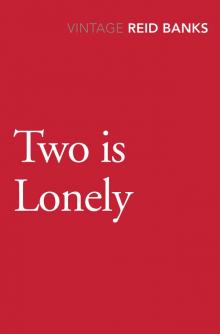 Two Is Lonely
Two Is Lonely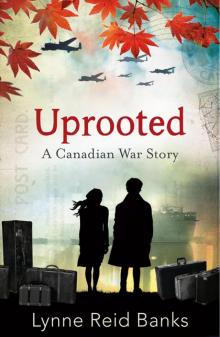 Uprooted - a Canadian War Story
Uprooted - a Canadian War Story The Backward Shadow
The Backward Shadow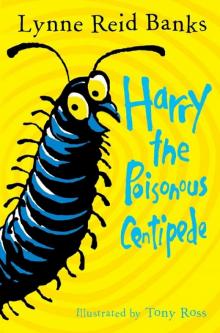 Harry the Poisonous Centipede: A Story to Make You Squirm
Harry the Poisonous Centipede: A Story to Make You Squirm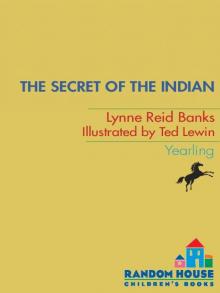 The Secret of the Indian (The Indian in the Cupboard)
The Secret of the Indian (The Indian in the Cupboard)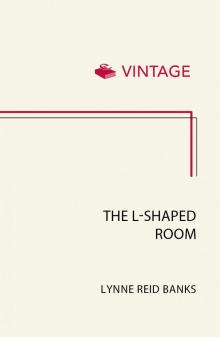 The L-Shaped Room
The L-Shaped Room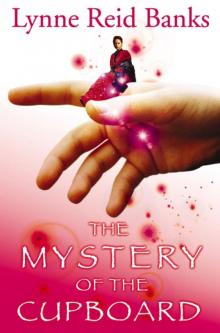 The Mystery of the Cupboard
The Mystery of the Cupboard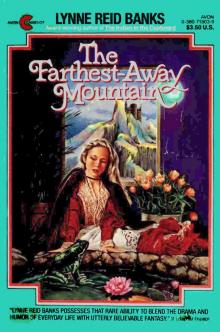 The Farthest-Away Mountain
The Farthest-Away Mountain Harry the Poisonous Centipede Goes to Sea
Harry the Poisonous Centipede Goes to Sea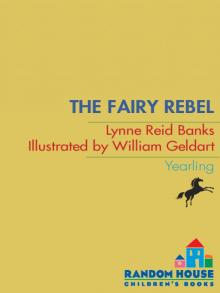 The Fairy Rebel
The Fairy Rebel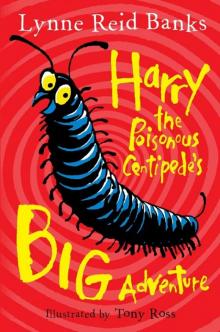 Harry the Poisonous Centipede's Big Adventure: Another Story to Make You Squirm
Harry the Poisonous Centipede's Big Adventure: Another Story to Make You Squirm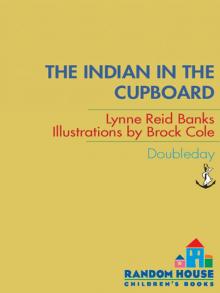 The Indian in the Cupboard
The Indian in the Cupboard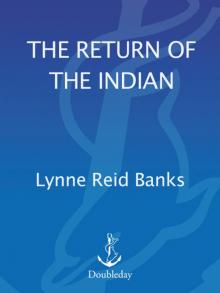 The Return of the Indian
The Return of the Indian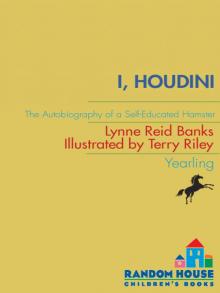 I, Houdini
I, Houdini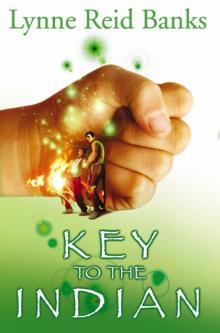 The Key to the Indian
The Key to the Indian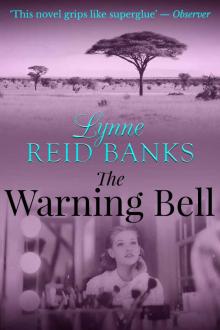 The Warning Bell
The Warning Bell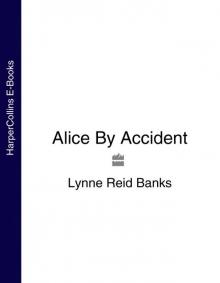 Alice by Accident
Alice by Accident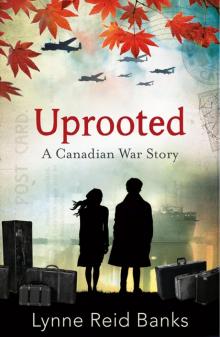 Uprooted
Uprooted Writing On the Wall
Writing On the Wall The Adventures of King Midas (Red Storybook)
The Adventures of King Midas (Red Storybook)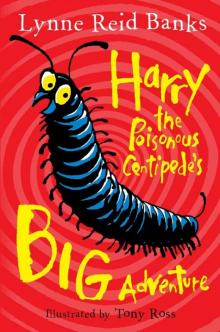 Harry the Poisonous Centipede's Big Adventure
Harry the Poisonous Centipede's Big Adventure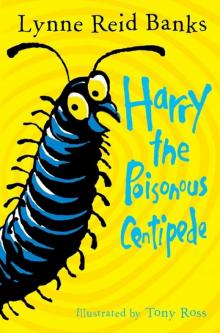 Harry the Poisonous Centipede
Harry the Poisonous Centipede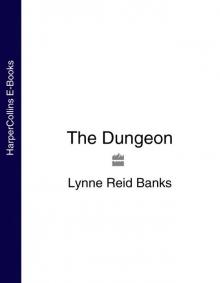 The Dungeon
The Dungeon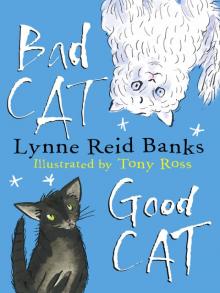 Bad Cat, Good Cat
Bad Cat, Good Cat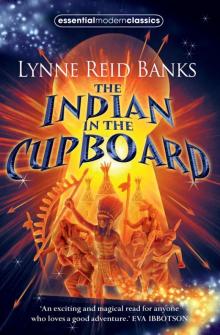 The Indian in the Cupboard (Essential Modern Classics, Book 1)
The Indian in the Cupboard (Essential Modern Classics, Book 1)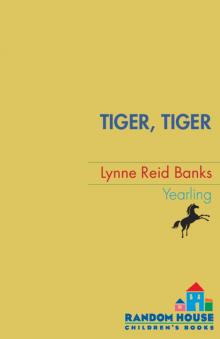 Tiger, Tiger
Tiger, Tiger